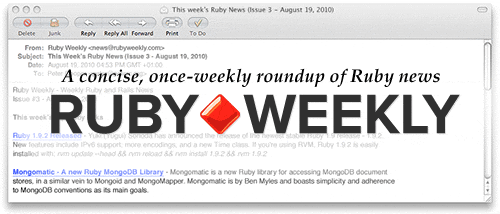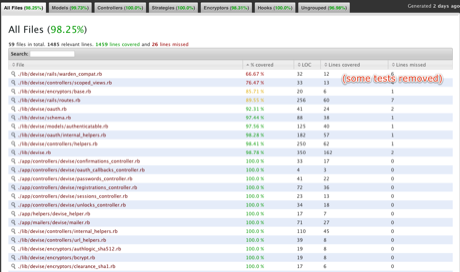Read Ruby is an online “book” about Ruby 1.9 in a mostly referential style. It’s licensed under a Creative Commons Attribution-NonCommercial-ShareAlike license so is reasonably “free” if you want to make and share changes, as long as you’re not doing so for profit.
The author stresses that the book is in “a very rough state” but it looks pretty good to me so far. There are 19 chapters covering broad topics like strings, character encoding, IO, files, and objects in general. Notably, the book is heavily focused on syntax rather than instruction.
The book’s source files are hosted on GitHub if you want to get involved. Read More

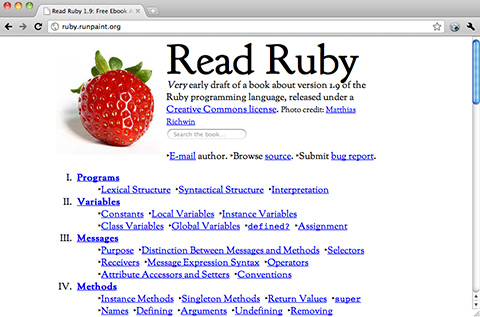
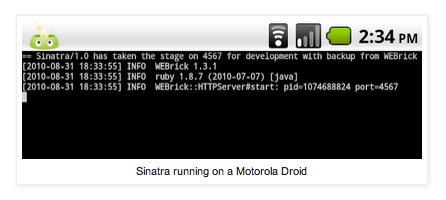
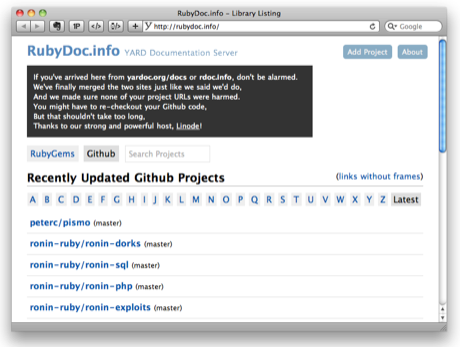
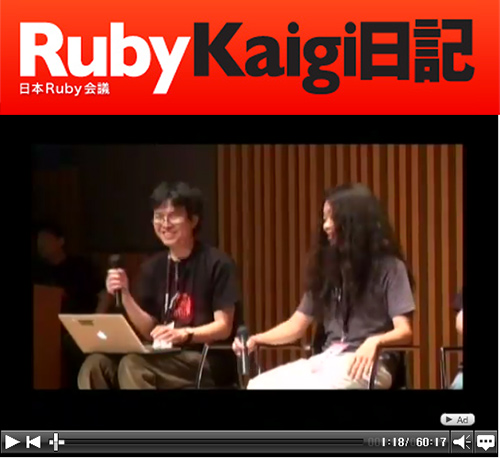
 DHH rings the bell and announces that
DHH rings the bell and announces that 